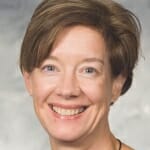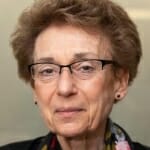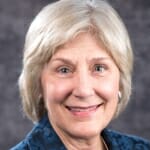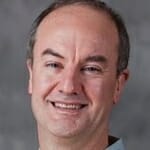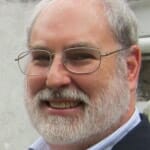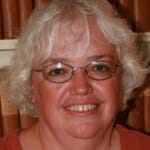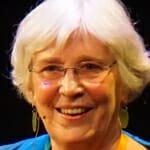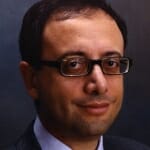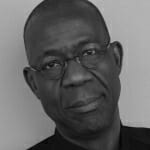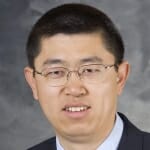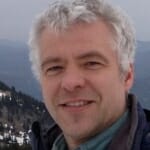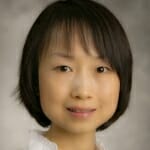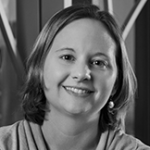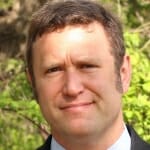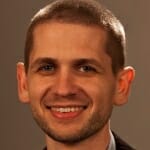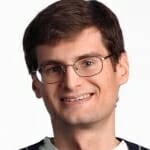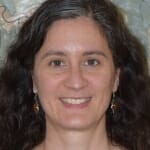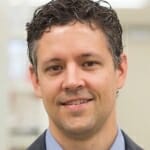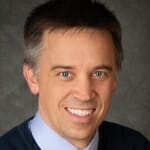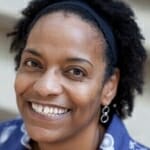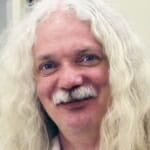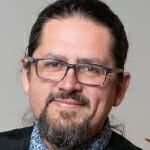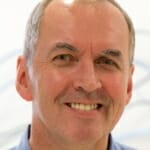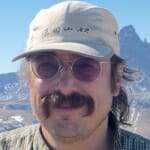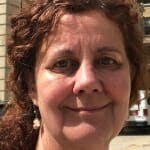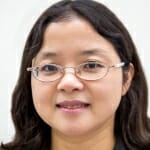Faculty receive WARF, Kellett, Romnes awards
Thirty-two members of the University of Wisconsin–Madison faculty have been awarded 2019-20 faculty fellowships. The awardees span the four divisions — arts and humanities, physical sciences, social sciences and biological sciences — on campus.
“Our faculty are a key component of what makes UW–Madison a world research institute and I am excited that we can recognize a cohort each spring with these fellowships,” says Norman Drinkwater, interim vice chancellor for research and graduate education. “These awards highlight faculty efforts to support the research, teaching, outreach and public service missions of the university.”
The awards are made possible by research efforts of UW–Madison faculty and staff. Technology arising from these research efforts is licensed by the Wisconsin Alumni Research Foundation. Income from successful licenses is returned to the Office of the Vice Chancellor for Research and Graduate Education to fund research activities throughout the divisions on campus, including these awards.
Ten faculty are appointed to WARF Named Professorships. The awards, which come with $100,000, honor faculty who have made major contributions to the advancement of knowledge, primarily through their research endeavors, but also as a result of their teaching and service activities. Award recipients choose the names associated with their professorships.
Eleven faculty have received H.I. Romnes Faculty Fellowships recognizing faculty up to six years past their first promotion to a tenured position. The award is named in recognition of the late WARF trustee president H.I. Romnes, and comes with $60,000 that may be spent over five years.
Eleven faculty also have been honored with Kellett Mid-Career Awards to support faculty who are seven to 20 years past their first promotion to a tenured position. The award was created to provide needed support and encouragement to faculty at a critical stage of their careers and comes with $75,000 that may be spent over five years. The award is named for the late William R. Kellett, a former president of the WARF board of trustees and president of Kimberly-Clark Corp.
WARF NAMED PROFESSORSHIPS
Helen E. Blackwell, Norman C. Craig Professor of Chemistry, pursues research questions at the interface of organic chemistry and bacteriology to understand the role of chemical signals in bacterial interactions and infectious disease. She and her research lab have developed a range of novel chemical strategies that allow them to intercept and delineate an important cell-cell signaling pathway in bacteria called quorum sensing.
Rachel F. Brenner, Elaine Marks Professor, is a professor of Jewish Studies in the Mosse/Weinstein Center for Jewish Studies and has published widely on responses to the Holocaust in a variety of national literatures. Her current research focuses on responses of Polish intellectuals, writers and artists to the Jewish Holocaust.
Molly Carnes, Virginia Valian Professor, is director of the Center for Women’s Health Research, co-director of the Women in Science and Engineering Leadership Institute, and director of the Women Veterans Health Program at the William S. Middleton Memorial Veterans Hospital. Her work strives to make academic medicine, science and engineering welcoming and supportive of all potential talent, and to effect institutional change by equipping faculty with evidence-based strategies to help them break the bias habit.
Michael C. Ferris, Jacques-Louis Lions Professor of Computer Science, studies the theory, algorithms and application of mathematical optimization. His work focuses on the interface of disciplines, on competition, and on problems that improve designs, strategies and operations in application areas. He is the director of the Data Science Hub within the Wisconsin Institute for Discovery.
Richard Gourse, Masayasu Nomura Professor of Bacteriology, studies the mechanism of transcription initiation by identifying bacterial promoter elements and how they are recognized by RNA polymerase. This information has led to a better understanding of how gene expression is regulated by transcription factors and signals from the nutritional environment.
Kathryn Hendley, Roman Z. Livshits Professor, is a professor of law and political science. Her research focuses on the role of law in Russia. Following in the law in action tradition of the Law School, she explores how ordinary Russians experience law in their daily lives. She is currently engaged in a study of millennial lawyers in Russia, grounded in a 2016 survey of Russian law school graduates.
Judith Kimble, Vannevar Bush Professor of Biochemistry, discovered the first stem cell niche in 1981, and since has unraveled the genes, pathways and networks that regulate stem cell self-renewal and differentiation. Her research, based in nematodes, has revealed molecular mechanisms operating in all animals with implications for human disease.
Manos Mavrikakis, James A. Dumesic Professor of Chemical Engineering, studies the elucidation of detailed reaction mechanisms for heterogeneously catalyzed reactions and the identification of improved catalytic materials through a combination of molecular and microkinetic modeling with reaction kinetics experiments. Mavrikakis has been the editor-in-chief of Surface Science since 2012, and is a Visiting Miller Research Professor at the University of California, Berkeley.
Doug Maynard, Maureen T. Hallinan Professor of Sociology, examines how the organization of talk and social interaction is accomplished, how that accomplishment both enables and is constrained by context, and how the context shifts through the interaction. Recent work is on the testing and diagnosis of autism spectrum disorders and end-of-life conversations. He is also a social theorist whose work has tied ethnomethodology together with pragmatism, science and technology studies, and other sociological forms of explanation.
Tejumola Olaniyan, Wole Soyinka Professor of the Humanities, studies the literatures and cultures of Africa and the African diaspora in America and the Caribbean. His current work focuses on popular visual art and democratic struggles, histories of emotion in African and African diaspora music, and cultural forms and practices of urbanization in Africa.
H.I. ROMNES FACULTY FELLOWSHIPS
Weibo Cai, professor of radiology and medical physics, studies molecular imaging, molecular therapy and nanobiotechnology. He has served on the editorial board of several journals and various committees of the Society of Nuclear Medicine and Molecular Imaging. He teaches molecular imaging.
Jan Egedal is a plasma physicist specializing in physical processes relevant to space and astrophysical applications. Egedal is carrying out research on a phenomenon known as magnetic reconnection, using theory and laboratory experiments to study how magnetic field lines break while powering the aurora borealis.
Chao Fu, professor of economics, combines economic theories and econometrics tools to study a wide range of policy-relevant topics. Her research has shed light on the design of policies in areas such as education and crime. She is a passionate teacher and an active contributor to the university and the profession.
Sigan Hartley is an associate professor in human ecology and a Waisman Center investigator. Her science is making marked contributions to the field of neurodevelopmental disabilities. She is committed to training the next generation of researchers.
Chris Hittinger, associate professor of genetics, researches yeast evolutionary genomics, biodiversity, and brewing and bioenergy applications. Key discoveries include the cold-tolerant parent of hybrid lager yeasts, horizontal transfer of a bacterial operon into yeasts, and a budding yeast secondary metabolite gene cluster. The Wild YEAST Program trains undergraduates with genuine discovery-driven research experiences.
Jeremy Hutton, professor of classical Hebrew language and biblical literature in the Department of Classical and Near Eastern Studies, specializes in the social and linguistic contexts in which the Hebrew Bible was composed and edited. He is working on projects in several sub-fields of Hebrew Bible and Northwest Semitics, including the composition and reception history of the Book of Samuel; translation in antiquity; Palmyrene Aramaic epigraphy; and cognitive linguistic approaches to Hebrew semantics.
Derek Johnson, associate professor of media and cultural studies in the Department of Communication Arts, investigates the relations of power and the politics of the future that shape the production of content, markets and authority in popular entertainment industries. His most recent book, “Transgenerational Media Industries: Adults, Children, and the Reproduction of Culture,” is forthcoming from the University of Michigan Press.
Jenna Nobles, professor of sociology and associate director of the Center for Demography and Ecology, studies demographic behavior and population dynamics — including Mexico-U.S. migration, displacement after environmental disaster, and population exposures that affect fertility and pregnancy survival.
J.R. Schmidt is a professor of chemistry. His research focuses on designing new computational methods to enable predictive modeling of next-generation gas sorbents and catalysts. Schmidt is a leader in efforts to integrate computational chemistry into the undergraduate curriculum.
Erika Marin-Spiotta is an associate professor of geography with research interests in climate and land-use change effects on terrestrial carbon cycling and tropical forest ecology and strategies for improving workplace climate. She currently leads a national program in collaboration with professional societies to broaden participation in science.
Dave Pagliarini, associate professor of biochemistry and director of the Morgridge Institute for Research’s Metabolism Theme, studies mitochondria — ubiquitous organelles essential for cellular metabolism. His lab integrates classic biochemistry with large-scale methodologies to systematically define the functions of uncharacterized mitochondrial proteins and to establish the detailed mechanisms that drive disease-related mitochondrial pathways.
KELLETT MID-CAREER AWARDS
Daniel Bolt, professor of educational psychology, develops and studies applications of statistical methods in education and the social sciences, especially as related to the measurement of educational and psychological constructs. His research focuses on statistical tools relevant to computer-based measurement, including the administration and scoring of novel computer-based item types, as well as methods for evaluating their validity and equity across student populations.
Tonya L. Brito, professor of law and faculty affiliate with the Institute for Research on Poverty, studies how the legal system governs the family lives of poor people. An award-winning scholar, Brito’s extensive ethnographic research examining the civil justice experiences of low-income, unrepresented litigants in family court has been supported by the Russell Sage Foundation and the National Science Foundation’s Law and Social Sciences Program. She previously served as the Law School’s associate dean for research and faculty development and as director of its Institute for Legal Studies.
Simon Gilroy, professor of botany, studies the cellular and molecular processes responsible for plant sensory activities. His research explores how plants respond to stresses such as herbivory and pathogen attack as well as their reactions to the uniquely stressful environment of space flight.
John Hitchcock, professor of art, uses the print medium with its long history of commenting on social and political issues to explore his relationships to community, land and culture. Hitchcock’s artwork consists of mythological hybrid creatures (buffalo, owl, horse, deer) and military weaponry (tanks, bombs, helicopters) based on his childhood memories and stories of growing up in the Wichita Mountains of Oklahoma next to the U.S. field artillery base, Fort Sill. Many of the images are interpretations of stories told by his Kiowa and Comanche grandparents and abstract representations influenced by beadwork, land and culture.
Albrecht Karle, professor of physics, studies high-energy neutrino astrophysics with the IceCube Neutrino Observatory at the South Pole to understand the origin and nature of extreme particle accelerators in the universe. He has been instrumental in the design and construction of IceCube as well as in its scientific analyses. The discovery of a cosmic neutrino flux in 2013 represented a major breakthrough for IceCube. Karle is also working on next-generation instruments, including radio detectors and a large upgrade of IceCube.
Laura McClure, professor of classics, is a scholar of ancient Greek drama, women and gender in classical antiquity, and classical reception. Her books and articles have demonstrated the centrality of female representation to the genre of Greek tragedy and its engagement with ancient Athenian politics, religion and poetics in 5th-century Athens. Her new project, Reimagining the Chorus, builds upon her earlier investigations of the female poetic voice by examining how the modernist American poet, Hilda Doolittle, known as H.D., adapted and reconfigured the tragic chorus to shape her own literary aesthetic.
Basil Tikoff, professor of geoscience, is a field-based geologist who studies deformation at all levels within the Earth’s tectonic plates. He studies the formation of the Rocky Mountains, the interaction of volcanoes and faults, pre-plate tectonic deformation in the early Earth, and how subduction zones initiate. He also works with cognitive scientists to better understand spatial cognition, to improve both professional geology practice and student learning.
Manon van de Water is a professor in Slavic and Interdisciplinary Theatre Studies, and director of Theatre for Youth. Her research and teaching focus on theatre, youth, and Russian performance with an emphasis on theatre historiography and theatre for social justice. She is a co-founder and chair of the International Theatre for Young Audiences Research Network.
Susan Webb Yackee is a professor of public affairs and political science. Her research and teaching interests focus on U.S. policymaking, with a concentration on government regulations. Yackee’s current research explores the interplay between science and interest group influence during policy creation at the Food and Drug Administration. She presently serves as the director of the La Follette School of Public Affairs.
Wei Xu, professor of oncology in the McArdle Laboratory for Cancer Research, is noted for uncovering the functions of arginine methyltransferases and hormone receptors in regulating aberrant gene expression in cancer cells. Her research provides critical insights into how breast cancer develops and approaches to treating it.
Louise Young is a professor of Japanese history. During the past year, she has been a fellow at the Institute for Advanced Study in Princeton and the Wilson Center in Washington, D.C., working on a book on post-imperial Japan. Her publications and teaching include the study of Japanese imperialism, Sino-Japanese relations, urban and local history and World War II in Asia.

